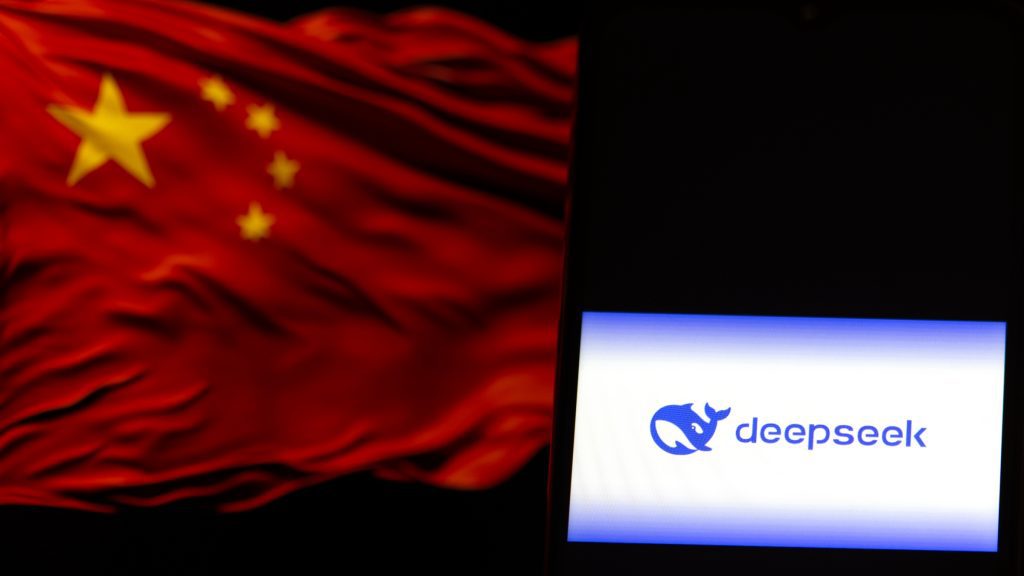
When DeepSeek launched its two-high performance AI models, V3 and R1, it delivered advanced capabilities at lower costs and accelerated computing power, openly putting the sector of AI in China on the map as OpenAI watched carefully its newly risen competitor disrupt its country’s stock market, with just, two models.
DeepSeek’s V1 and R1 models gained attraction quickly amongst global AI leaders, with Western rivals praising its technology. But the man running Google’s AI unit, told Bloomberg Televison that DeepSeek kind of misled the public with the real cost of the training.
Speaking at the Artificial Intelligence Action Summit in Paris, Google DeepMind boss, Demis Hassabis, said that DeepSeek “seems to have only reported the cost of the final training round, which is a fraction of the total cost.”
AI companies in China are pushing ahead with AI autonomy amid US trade bans, and DeepSeek’s tech has been picked up by market leaders like Lenovo Group, UBTech, and Geely. Yet questions over how much it has spent on its AI build-up and whether it will be in regulatory sights are moderating its further ascent.
DeepSeek’s Profiles AI in China
Hangzhou-based DeepSeek is leading the push for generative AI in China independence, with AI use in China entering new territory of industrial manufacturing upgrades and powering high-end automation in robotics, EVs, and PCs for smart user interfaces.
Amidst US sanctions on chips affecting China, success with DeepSeek demonstrates it’s a key enabler for the AI-driven China of the future.
With demand for AI solutions growing and becoming more localized, DeepSeek is taking the lead by entering into collaborations with local manufacturers to get its models embedded in even more applications. According to industry observers, the company’s success will allow China to break its reliance on foreign AI technology, providing it with strategic edge in the global race.
Doubts over DeepSeek’s AI development in China
DeepSeek made headlines with its AI development, but skeptics are doubtful over the announced development cost of the startup. DeepSeek, one of the top AI companies in China indicated that it had trained its AI model at a cost of less than $6 million, far less than OpenAI and Google DeepMind spend in the US tech industry.
However, Google DeepMind CEO Demis Hassabis denied the accusation as “exaggerated and a bit misleading.” At the Artificial Intelligence Action Summit held in Paris, Hassabis indicated that DeepSeek’s supposed price only accounts for the last stage of training alone, not for the total cost of development.
DeepSeek only disclosed the expense of the last round of training, a portion of the overall expense,” Hassabis told Bloomberg in an interview, dispelling the notion that DeepSeek had altered the economics of AI, saying, “We don’t see any new silver bullet technologies… DeepSeek is not an outlier on the efficiency curve.”
The reports “US Investigates Whether DeepSeek Bypassed Export Controls to Obtain Nvidia Chips” and “OpenAI Investigates Potential Unauthorized Use of Its Models by DeepSeek” revealed that US authorities are investigating if DeepSeek evaded chip sanctions by purchasing Nvidia processors via Singapore.
OpenAI and Microsoft, on the other hand, are conducting their own investigative moves, to assess whether DeepSeek used data from OpenAI models via a process known as distillation, where an AI model is trained using the output of another model.
As DeepSeek’s is magnifying the role of AI in China, despite endless questions about its approach and funding, as well as concerns over its development process transparency.
Inside Telecom provides you with an extensive list of content covering all aspects of the tech industry. Keep an eye on our Intelligent Tech sections to stay informed and up-to-date with our daily articles.